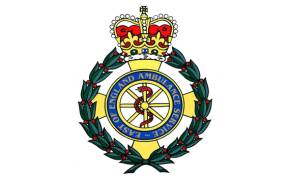
The past two years has been a period of immense change within the EOCs. We have successfully completed the implementation of the new CAD system in a very short timescale, brought in a new version of MPDS (our code set for triage) and implemented LOWCODE as a replacement upgraded clinical triage software for hear and treat. Alongside this we have moved to the new approach of early prediction of Red 1 calls and dispatch based on coding for other categories, known as dispatch on disposition, pre-triage questions and nature of call. Since its introduction we have seen prediction rates for Red 1 rise to 60% and critically over 75% for cardiac arrests, which means we are able to recognise the most serious emergencies quicker, meaning we can get help to these patients faster. We continue to work on refining and improving this process.
As you will know, our performance for our most critically ill Red 1 patients has improved over the past year particularly. The ECAT (Emergency Clinical Advice and Triage) function has been transformed with many new clinical staff joining us in all three EOCs resulting in our hear and treat rates more than doubling. Over this year we are aiming to reach a 10% hear and treat rate to manage demand through alternative care pathways and therefore reduce pressure on those colleagues working on RRVs and ambulances as well as in EOC – this also means we are giving patients the right treatment or advice first time, rather than automatically sending an ambulance. Finally community collaboration was brought into our portfolio last year, and with over 900 volunteers this is an area we know we need to work on further in terms of engagement and deployment of CFRs. The fire co-responder scheme is also providing valuable support for those patients in cardiac arrest, helping to improve patient’s chances of survival.
One of our challenges is rising demand, and although this has settled to an extent in the last quarter, the historic and significant increases have resulted in the need for more call handlers in EOC, which is the critical first step in the patient journey. We have commenced recruitment for an additional 17 call handlers which will help relieve some of the pressures in EOC. Despite the increased demand we remain in the top two Trusts nationally for BT connected delays via the 999 system, in essence protecting 999 callers from long delays in their call being answered. We are also continuing ECAT recruitment so we can continue the work to further reduce demand at source and treat patients appropriately first time. Over the next year we will also increase our focus on development and mentoring for our teams.
We recently had the sad news that Steve Sale had passed away and last week I attended his funeral along with many of his fellow colleagues. I would like to pass on my thanks to everyone who attended. Steve was a much loved colleague and friend to many and will be sadly missed. From talking to his family afterwards it was also clear that they really appreciated the great turnout from across the Trust and the support they have been given. I am also sad to share the news that Roger Ditcham passed away suddenly at the end of last week. Roger was one of the longest serving Community First Responders in Norfolk and part of the Freethorpe group. Our thoughts are with his family and friends and we are truly grateful for the many hours of volunteer support he provided to the local community to help our patients.
As some of you will know, Brett Norton (Senior EOC Manager for Norwich) leaves the Trust this month. On behalf of the team, we would like to thank Brett for his contribution to EOC and the Trust and we wish him all the best for the future as he moves into a new career. I would like to offer my congratulations to Paul Vinters (Norwich) and Nicola Turner (Bedford) who have been appointed into the vacant Senior EOC Manager posts.
I have only been able to cover some of initiatives and areas our teams have been working on but I would like to finish by saying thank you to all our staff and volunteers both in EOC and beyond. Alongside those delivering direct patient care, many departments and teams across EEAST provide us with valuable support which we are very grateful for. The result is that whilst we still have challenges in our operating environment, it does mean that everyone in our organisation has an impact on providing care to patients whatever their role.
Have a good week,
Gary